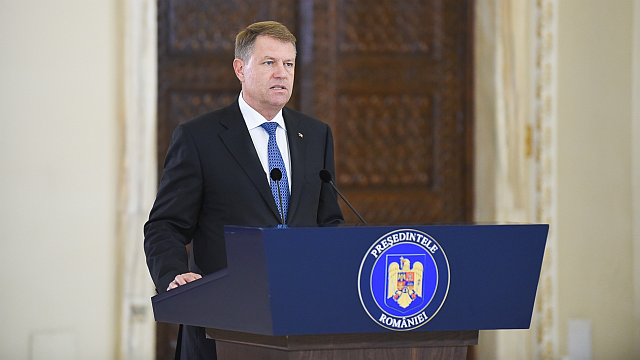The president signs public sector pay bill into law
Romanias President Klaus Iohannis promulgates the new public sector salary law.

Roxana Vasile, 29.06.2017, 12:42
The recent political
crisis in Bucharest has raised fears that the public sector salary law will be
left aside for a while and its implementation delayed. Moreover, the removal of
the Social-Democratic Cabinet headed by Sorin Grindeanu, who initiated the bill
in the first place, and the prospects of its being replaced by a government of
a different political colour had the pessimists believe that the law,
benefiting a large part of the population, would be forgotten. However,
everybody’s fears were dispelled when it was announced that president Iohannis has
promulgated the law.
A communiqué issued
by the Presidential Administration reads that the head of state supports the
need for a sustainable increase in the salaries of public employees, in order
for their living standard to increase. The president has also stressed the fact
that it is the responsibility of the parties that make up the ruling coalition
– the Social Democratic Party and the Alliance of Liberals and Democrats – to
ensure a balanced growth and to harmonise the income growth objective with that
of maintaining Romania’s macro-economic and budgetary stability. This law
should solve the salary issues facing the public sector, but without causing
other problems instead, the president also said. Any subsequent budget
adjustments should be made in a transparent, credible and responsible manner,
without affecting sectors of utmost importance for the development of Romania’s
economy, namely investments and infrastructure projects.
The business
community is worried that the Executive will introduce additional taxes and fees
for private businesses in order to secure the money needed to increase salaries
in the public sector. Here is the president of the National Council of Small
and Medium-Sized Enterprises Liviu Rogojinaru:
As long as we don’t
know where the money comes from, as long as these salary increases are not
based on a set of competence criteria, we are afraid that the Government, not
knowing where to get the money from, will turn towards the private sector and
will say: OK, let’s levy some extra taxes and fees, because this is the only
place that we can take money from without too much trouble.
There are trade
union representatives who are not very happy with the new law either. The
president of the Cartel Alfa Trade Union Confederation Bogdan Hossu has stated
that the law will not solve, as it should, the salary gaps existing in the
public sector, as there is no salary grid, for instance, for local public
government employees.
The public salary
law stipulates that over the coming five years, state employees’ salaries will
grow by more than 50% on average. State sector employees say that the law
finally does them justice, all the more so as they were the first victims of
the salary slashes operated in 2010, when the global economic crisis also
spread to Romania.






























